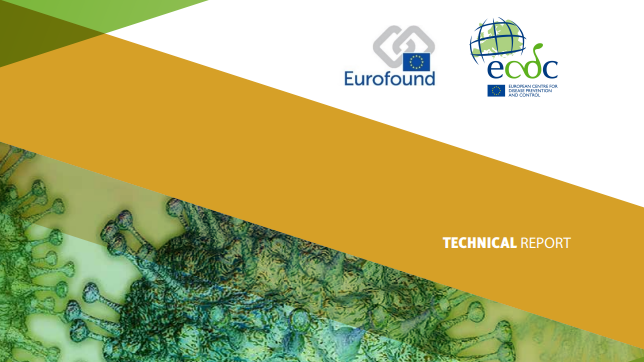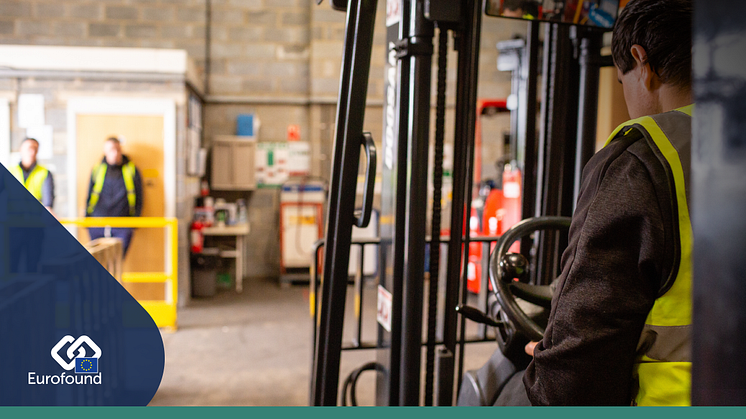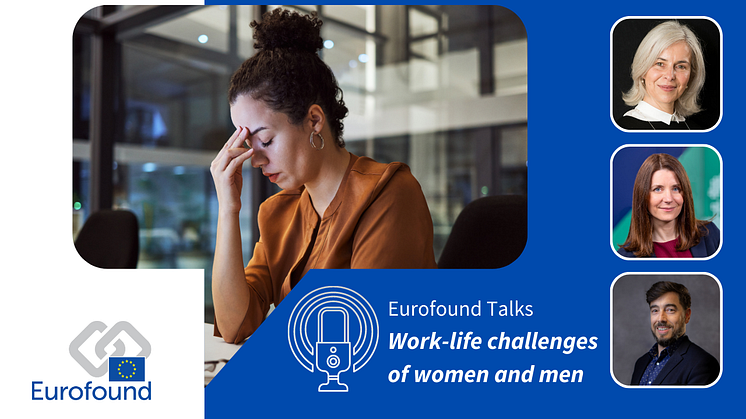Job insecurity undermines democracy
Workers on non-permanent contracts and workers with no formal contract are less satisfied with the functioning of democracy in their country, as are workers experiencing job insecurity.

Workers on non-permanent contracts and workers with no formal contract are less satisfied with the functioning of democracy in their country, as are workers experiencing job insecurity.

A new joint report by ECDC and Eurofound concludes that adult work-life balance was significantly affected by measures such as stay-at-home orders and recommendations, closures of day-care, primary and secondary schools and national teleworking recommendations implemented in response to the COVID-19 pandemic.

Extreme temperatures in southern Europe have impacted workers’ health and resulted in industrial action in some EU Member States. Eurofound’s research shows that, already in 2015, 23% of workers in the EU were exposed to high temperatures during at least a quarter of their working time.

While losses in real minimum wages have occurred in several countries across the European Union, these have not eroded the long-term gains of purchasing power that have occurred across the EU since 2013. In an effort to offset inflation, governments have significantly increased nominal minimum wages across Europe. In 2023, the median nominal increase was almost 11%, compared with just 5% in 2

The move to a climate-neutral economy doesn't only represent risks and costs, but it has the potential to create exciting new opportunities with net employment gains, new business sectors and a healthier environment. Eurofound and the EEA have brought together EU level and regional experts and stakeholders to explore what these socioeconomic impacts could be and how policy could respond.

People fleeing Russia’s invasion of Ukraine can seek jobs in Europe but not knowing the host country’s language and temporary job placements are just some of practical barriers identified in a new research paper from Eurofound and the EU Agency for Fundamental Rights (FRA).

The growth of platform work has highlighted its potential for those that require more flexible work arrangements but has also raised concerns about working conditions and exposing the vulnerability of platform workers with respect to access to safe working environments and social protection.

Europe Day is a celebration of unity, solidarity and harmony. While we may not have had much to celebrate this past year, one thing we can be proud of is how Europe has come together in the face of large-scale challenges and threats, showing that solidarity is the key to resilience and resolve.

Eurofound's Living and working in Europe Yearbook 2022 looks at the major trends in employment, social dialogue, working conditions, living conditions and quality of life in an important year for Europe, which saw the beginning of Russia's brutal war of aggression against Ukraine, and the fallout for Europe and its citizens, including a cost-of-living crisis felt throughout the continent.

Eurofound, in partnership with the European Training Foundation (ETF), has launched a new online survey which aims to document living and working conditions in Europe and the evolving concerns of citizens amidst the cost-of-living crisis, the war in Ukraine, and the broader post-COVID-19 context.

While an initiative such as the European Year of Skills is welcome, and improving skills can certainly go some way to help to address labour shortages, it is not a silver bullet. To address these challenges effectively, what is needed is a clear grasp of the drivers behind shortages in specific sectors and occupations and the policy context.

Eurofound’s new report looks at measures implemented at national level to tackle labour shortages in the health, care, and information and communication technology sectors, as well as those arising from the twin green and digital transition, to assesses what works and the contextual factors supporting or hindering effective policy implementation and outcomes.

Eurofound has published a special episode of the Eurofound Talks podcast to look at the work-life challenges of women and men, and in particular how gender segregation on the labour market, and gender inequalities in the division of paid and unpaid work, impede progress towards gender equality in Europe.

Women in the EU are 3.6 times more likely to suffer from unwanted sexual attention than men, with the likelihood of a young woman (18–34 years) reporting unwanted sexual attention three times higher than men of the same age, and 10 times higher than the oldest group of men (50+ years). This problem is even more acute for frontline workers, according to the most recent data.

The new episode of Eurofound Talks looks at the issue of job quality in the modern workplace. Mary McCaughey speaks with Eurofound Head of Unit for Working Life Barbara Gerstenberger about what the EWCTS reveals about job quality, the implications of poor-quality jobs on well-being and broader society, and what policymakers can do to improve the working lives of people in Europe.

With inflation expected to persist, a further depreciation of minimum wages in real terms can be expected in most Member States, as only a few foresee additional increases in 2023.

Despite nominal increases in statutory minimum wages reaching an all-time high between January 2022 and January 2023, minimum wage workers in most EU countries are seeing their purchasing power decline or just about compensated, based on preliminary inflation figures.

41.7 million people teleworked across the EU in 2021, double the number of 2019, as COVID-19 restrictions and changes in work culture significantly impacted work organisation.

The new factsheet on Living, working and COVID-19 in the European Union and 10 EU neighbouring countries presents a selection of results from the fifth round of Eurofound’s e-survey which extended to 10 neighbouring countries for the first time.

Oscar Vargas and Mary McCaughey use results from the Living, working and COVID-19 online surveys, the European Working Conditions Telephone Survey, and other analyses from Eurofound to investigate what the future holds for telework in Europe, and whether the mass rollout of telework has been to the benefit of workers and businesses.
